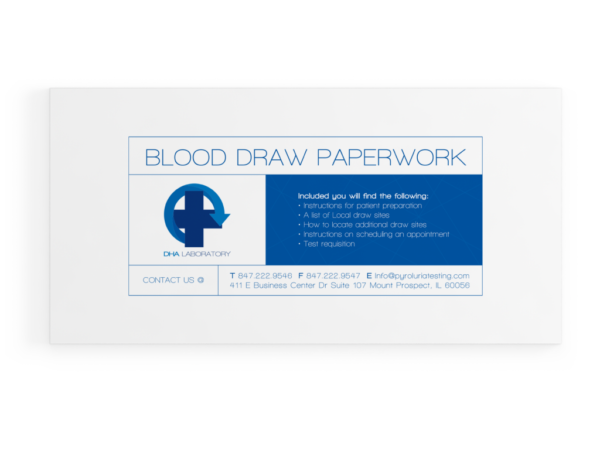Lab Testing
Product Description
**Note: All laboratory testing requires an authorizing physician. DHA Laboratory offers a patient direct program that partners you with an authorizing physician. If you have any additional questions regarding the availability of testing, please contact our laboratory by telephone or email.**
This test is to detect the presence of the APOE4 variant, which is associated with increased risk of late-onset (age >60-65) Alzheimer’s disease (AD). Testing may be considered for patients with dementia to supplement information from clinical and other evaluations. This test is not appropriate for children. APOE genotype results are E2/E2, E2/E3, E2/E4, E3/E3, E3,E4, or E4/E4. APOE genotyping supplies supplementary information for the clinical diagnosis of Alzheimer’s disease.
Alzheimer’s disease (AD) is the most common form of dementia in the elderly and currently affects more that 5 million Americans. It is a progressive neurodegenerative disorder with brain findings of amyloid plaques containing β-amyloid and neurofibrillary tangles. AD is a complex and heterogeneous disease, influenced by many genetic and environmental factors.
An early-onset variety in 1% to 5% of AD cases is autosomal-dominant and caused by rare mutations in known genes, including PSEN1, PSEN2, and APP. The predominant form of AD is late-onset (age >60-65), which can be familial (15% to 20%) or sporadic. The APOE4 (E4) variant of apolipoprotein E is strongly associated with risk of late-onset AD.
Apolipoprotein E (apoE) has multiple roles, including lipid transport in the blood and the brain. The APOE4 variant increases the risk for late-onset Alzheimer’s disease and may contribute to the pathology of the disease through influence on β-amyloid, inflammation, or other processes.
The risk for development of late-onset AD is increased approximately two- to threefold for individuals with one copy of the APOE4 variant and by approximately 10- to 15-fold for individuals with two copies of the variant (E4/E4 genotype). The APOE2 variant has some protective effect against development of late-onset AD. The lifetime risk for late-onset Alzheimer’s disease is approximately 10% to 12% in the general population, though it is higher in women than men and doubles when there is a first-degree relative with this disorder. The lifetime risk is approximately 9% for individuals negative for APOE4, and for individuals with E4/E4 may be as high as 25% for males and 45% for females. Among patients with late-onset AD, the presence of APOE4 may lead to earlier development of symptoms.
However, APOE4 is neither necessary nor sufficient for the development of Alzheimer’s disease. Approximately 30% to 50% of patients with late-onset Alzheimer’s disease do not have an APOE4 allele.
APOE4 is common, with 25% of the general population having one copy and 1% having two copies of this variant. Among patients with late-onset AD, 50% to 70% are positive for APOE4.
The development of late-onset Alzheimer’s disease is influenced by many factors other than APOE4, including age, gender, family history, level of education, and history of head trauma. Midlife cardiovascular risk factors in individuals with APOE4 also increase risk for cognitive decline. A number of genetic influences on Alzheimer’s development in addition to APOE4 have also been reported and are under investigation. APOE4 is also associated with poor outcome to brain trauma, and it can influence therapeutic response to drugs for AD.

